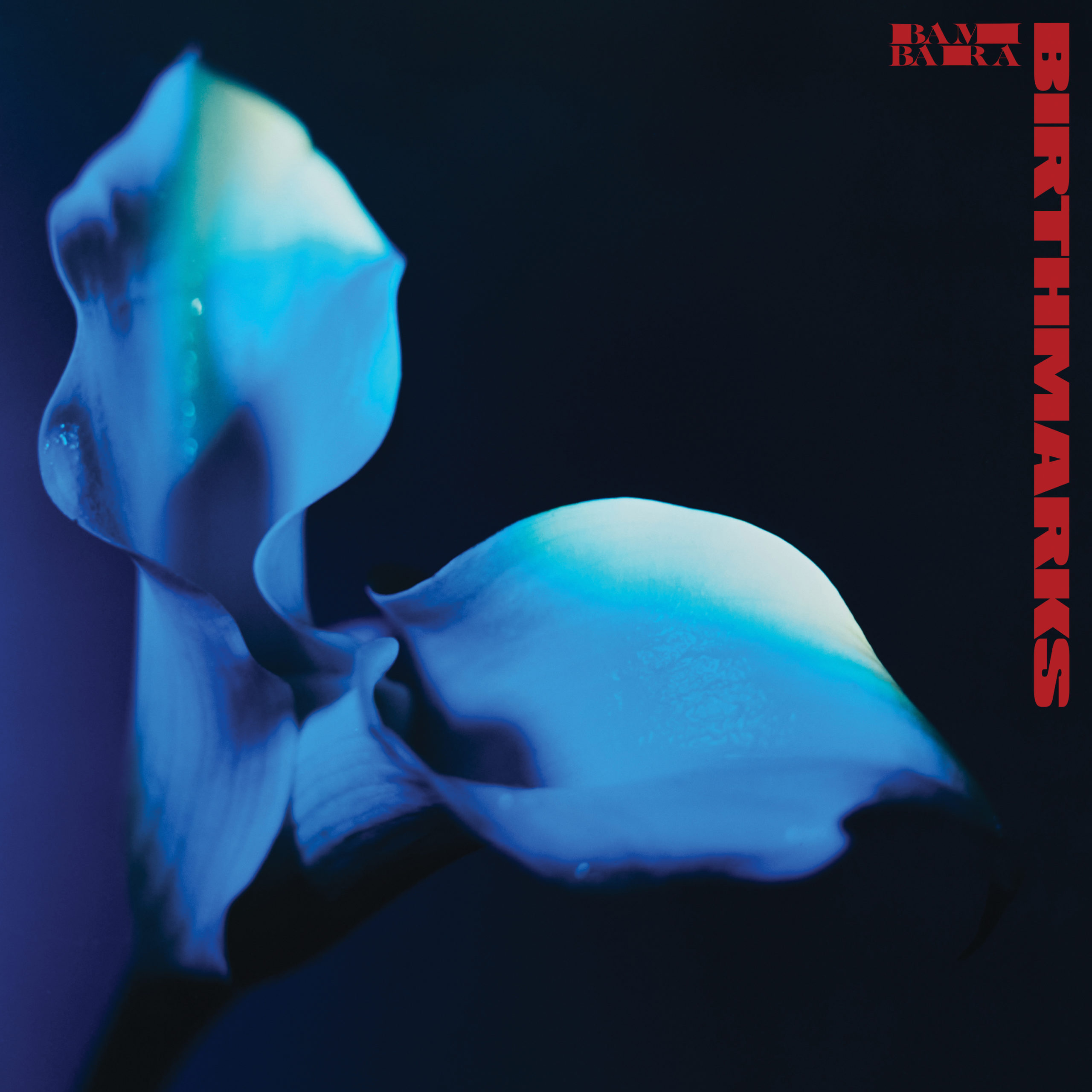
Birthmarks
—
Out March 14, 2025
—
Bella Union



The three members of Bambara – singer-guitarist Reid Bateh, his twin brother Blaze Bateh (drums), and bassist William Brookshire – first started playing together in junior high school in Atlanta, GA and pretty much every moment ever since then have been obsessively honing their sound and vision; first moving to Athens, GA and finally heading to Brooklyn where they’ve established their long-term base.
Their story really picks up pace after 2020’s breakthrough Stray album – a record whose volatile and frequently explosive wall of sound offered a gnarly backdrop for Reid’s typically twisted midnight narratives. Having toured with Idles and Gilla Band pre-pandemic (both big fans), this was the record – powered by their propulsive ‘Serafina single’ and widespread 6Music support – that really put them on the map on both sides of the Atlantic. They were duly signed to Bella Union (Wharf Cat in the US), who for the first time afforded them a budget to hire a producer for what became Birthmarks. Travelling to Ramsgate in Kent to record with Sutton in 2023, they sought to continue to revolutionize their sound beyond what many deemed their ‘post-punk’ leanings.
Says Blaze, “Graham was great at pushing us away from old habits, getting us to think of the same moments in a song with completely different lighting, or from different camera angles. We talked a lot about music that puts you in a cinematic space, like Sade and Portishead, and we focused more on the beats than we would in the past. We wanted it to move in a different way; we wanted certain moments to breathe.”
In stark contrast with Stray’s reverb-heavy, squalling-guitar mania, Birthmarks opens with ‘Hiss’, where an eerily foreboding Lynchian calm prevails as slo-mo drums, tense synths and ominous sub-bass soundtrack a lurid tale of a fleeting motel-room sexual encounter, its desolate middle-American mood recalling Springsteen in his ‘Nebraska’ prime.
Brookshire says he’d write on synth-bass, and there are less guitars across the record as a whole. As well as synths, they broadened their range of instrumentation, with guests providing sax, trumpet, vibraphone, harp, violin, viola and four different female voices (including Madeline Johnston from Midwife and Emma Acs of Crack Cloud).
Amid all that aural ambition, Bambara left Ramsgate not quite sure of what they’d created, and ultimately spent a good few months enthusiastically restructuring much of the record, communicating with Sutton remotely from their Brooklyn basement studio, often using manipulated samples of stuff they’d already recorded. Laughs Blaze, “We just can’t half-ass any of our records. We have to start an album, and let it find us – see what happens and let the music evolve us, instead of forcing ourselves to evolve in a certain prescribed way”.
For Reid, however, whose MO for penning lyrics is a direct response to the soundscapes the three of them spirit up together, this slow gestation was something of a nightmare. “I was starting to make things up that had no basis in an actual song yet, and it was really fucking with my head,” says this blood-and-thunder writer of the old school. “It was a real tough one. It usually takes me a month, but this time it took… How long was it? I’m really bad at time – five months? Five months of pretty much total isolation. When I write, I do it every day, and I don’t do anything else.”
Since moving to Brooklyn, Reid’s lyrics have reflected on the often surreal reality of growing up in the American South. Inspired by Southern Gothic novelists including Flannery O’Connor and Harry Crews, as well as the Louisiana jazz poet Yusef Komunyakaa, the stories in each song may seem to UK listeners to be unfolding in some semi-mythical bygone age, but, says Reid, “They absolutely have a basis in reality. I write about things that I feel I have enough experience with, and understanding of, that I myself have seen or experienced, or have friends that have. I never want it to feel like fantasy.”
Birthmarks without doubt represents Reid’s most sophisticated writing to date. Even Bambara’s first chaotic records, ‘Dreamviolence’ (2013) and ‘Swarm’ (2016) had some kind of thematic thread, and 2018’s ‘Shadow of Everything’ had a linear through-narrative from beginning to end. With ‘Stray’, which was peopled by characters he dreamt up from faces in random old photographs, he began to scramble the songs to bury the storyline, and this latest outing takes that process to even greater lengths, with submerged layers of meaning.
Bambara are a once-in-a-generation band of intrepid experimentation and compulsive storytelling. For those who crave potent and electrifying music in the lineage of its most celebrated literarily-inclined auteurs – Townes Van Zandt, Leonard Cohen et al – they are, without question, the real deal.